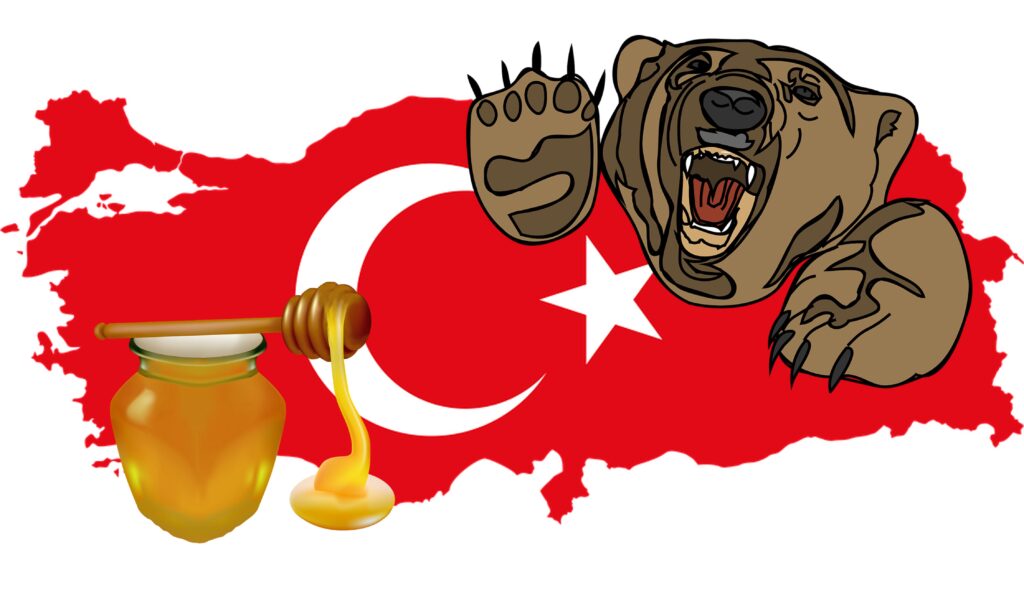An intelligence report issued by the Federal Security Service of the Russian Federation (FSB) that was found on the phone of a former Turkish Intelligence Organization (MİT) agent who is now under arrest for alleged membership in a terrorist organization reveals Russian plans and strategies after the downing of one of its warplanes by Turkey in 2015. According to the report, obtained by Nordic Monitor, in addition to a number of political and military suggestions for the authorities, Russian intelligence decided to follow Turkish President Recep Tayyip Erdoğan’s family members more closely.
Seventy-seven-year-old Enver Altaylı, a prominent former intelligence officer and advisor to former Turkish prime ministers Turgut Özal and Süleyman Demirel, was arrested in 2017 for alleged membership in the Gülen movement, a group critical of President Erdoğan. The prosecutor demanded that Altaylı be sentenced to 42 years, six months in prison on charges of “directing an armed terrorist organization” and “political and military espionage.”
Stating during the most recent hearing of his trial in September that he met with then-Prime Minister Ahmet Davutoğlu’s chief advisor Feridun Bilgin at the time to deliver the report to Davutoğlu, Altaylı claimed he could not be accused of espionage and that such a trial could only be held by Russian Federation prosecutors. Speaking to Independent Turkish, Bilgin confirmed that he had received the report allegedly prepared by senior FSB executives.
Altaylı also stated that the Russian intelligence report on his phone was included in the indictment as if it were his own report and that he was accused of having devised the plans in the report himself, claiming the report was put in the judicial file and deciphered by the prosecution and that that was a crime. He also said that by disclosing the report, the Russians were informed of secret information in the hands of the Turkish state.
“The prosecution that is accusing me of espionage is actually sharing secret state information with the Russians,” he added.
The report, which was drafted by Igor Gennadyevich Sirotkin, deputy director of the FSB, on December 8, 2015, two weeks after the downing of the Russian warplane on the Turkish-Syrian border, suggested a comprehensive series of military and political steps to be taken against Turkey. A variety of suggestions were offered, from putting the Turkish army in a difficult situation in Syria and ensuring a new refugee influx to Turkey to Russian agents in Turkish institutions engaging in disinformation activities. The intelligence report, which was submitted to FSB Director Alexander Vasilyevich Bortnikovwhich, also included recommendations that would put Erdoğan’s ruling party in a difficult situation with the Turkish public and dedicated a section to members of the Erdoğan family who were accused of engaging in the oil trade with the Islamic State in Iraq and Syria (ISIS).
Sirotkin, who called Erdoğan’s son Bilal Erdoğan the “ISIS energy minister,” suggested updating the surveillance status of Erdoğan’s family members. The report mentions maritime company BMZ, owned by Bilal Erdoğan, and recommends an investigation into the financial sources he used to buy new tankers. Sirotkin also suggested that the then-energy minister, Erdoğan’s son-in-law Berat Albayrak, who was described as a “media boss” in the report, be the subject of
It is no secret that Russians had done detailed intelligence work on how ISIS oil reached the international market and had collected information on Berat Albayrak and Bilal Erdoğan prior to the crisis between the two countries in 2015.
Nordic Monitor previously reported that Anatoly Antonov, then-deputy minister of defense of the Russian Federation, held a briefing on December 4, 2015, broadcast live on state television, presenting intelligence photographs and video clips taken from the air and space showing a large number of trucks transporting oil from then-ISIS-controlled regions in Iraq and Syria to Turkey.
“Turkey is the main destination for the oil stolen from its legitimate owners, which are Syria and Iraq. Turkey resells this oil. The appalling part about it is that the country’s top political leadership is involved in the illegal business — President Erdogan and his family,” Antonov said during the briefing.
Antonov attacked Erdoğan personally, alleging, “Mr. Erdoğan and Turkish leaders would not step down or admit anything even if their faces were smeared with stolen oil.”
Antonov also targeted Erdoğan’s son Bilal Erdoğan and his son-in-law Berat Albayrak, who was energy minister at the time. “It is interesting that no one in the West [asks] themselves the question of why the son of the Turkish president is the head of one of the largest energy companies and his son-in-law the minister of energy and natural resources?”
The nine-month-long crisis started to resolve after President Erdoğan on June 27, 2016 apologized to Putin, saying, “Turkey never had the desire or deliberate intention of shooting down the Russian plane,” in the wake of heavy economic sanctions and diplomatic pressure in the international arena by Russia.
The relations between the two countries were further strengthened when Turkey made a deal to buy a Russian-made S-400 air defense system despite repeated warnings of sanctions from the US, in 2017, one year after a coup attempt that resulted in the purge of pro-NATO officers from the military.
.
by Levent Kenez, October 2, 2021, published on NORDIC Monitor






